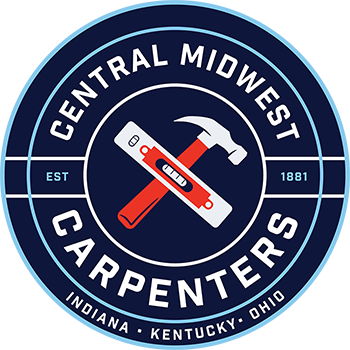NEWS
HOT ITEM


Recent News
 2024 Indiana Kentucky Graduate Speaker – Kyle HarveyMarch 28, 2025 - 1:49 pm
2024 Indiana Kentucky Graduate Speaker – Kyle HarveyMarch 28, 2025 - 1:49 pm Military Outreach Makes Big ImpactMarch 24, 2025 - 3:29 pm
Military Outreach Makes Big ImpactMarch 24, 2025 - 3:29 pm 2025 Central Midwest Sisterhood UpdateMarch 3, 2025 - 5:13 pm
2025 Central Midwest Sisterhood UpdateMarch 3, 2025 - 5:13 pm Craft Spotlight – Justin RogersFebruary 26, 2025 - 4:44 pm
Craft Spotlight – Justin RogersFebruary 26, 2025 - 4:44 pm Ohio’s Newest Journey-Level Carpenters: Class of 2025February 25, 2025 - 12:55 pm
Ohio’s Newest Journey-Level Carpenters: Class of 2025February 25, 2025 - 12:55 pm Craft Spotlight – Brandon HuffmanFebruary 19, 2025 - 3:26 pm
Craft Spotlight – Brandon HuffmanFebruary 19, 2025 - 3:26 pm Craft Spotlight – Ron HeimelFebruary 5, 2025 - 5:14 pm
Craft Spotlight – Ron HeimelFebruary 5, 2025 - 5:14 pm


Class representative addresses crowd at graduation banquet
/0 Comments/in News /by IKORCCJerome Stanford completed the apprenticeship program with hundreds of others from Indiana and Kentucky and were honored with a completion ceremony in December 2015. As the selected speaker to represent the graudation class, Jerome addressed the members and guests that night.
Why should politics matter to you?
/0 Comments/in News /by IKORCCAmerican workers have felt a slow decline in their wages since the early 1980s, meaning wage increases have been slightly lower than the cost of living increase. This means less money for groceries, clothing, your children and the everyday essential you may need for raising a family or saving for retirement.
Union wages for the construction industry are no different, except unions have contracts that include wage increase, healthcare and retirement plans. With ongoing training programs for apprentices and journeymen this allows the workers to be more skilled than the nonunion workers. Productivity levels are higher, accidents are lower, and attitudes on job sites are more positive than ever before because of the investments in training by the members and their union. These union contracts are agreements between Labor and Contractors. The more highly skilled workers usually result in better wages, better working conditions and better benefits for their family.
On the other hand, payroll fraud is spreading rampant through the construction industry. This is where unscrupulous nonunion contractors choose to hire hourly workers and pay them cash or as independent contractors (1099s) by not withholding the employee’s state or federal tax deductions, FICA withholdings and Medicare deductions, leaving this responsibility on the workers to pay.
Learn more about payroll fraud
Who are my legislators in Kentucky?
/0 Comments/in News /by IKORCCThe Kentucky Legislative Research Commision provides a map to reveal the elected officials in your area. You can use the search by address at the top or select your location. By clicking on his/her bio page, you can find contact information including phone, email and mailing adress. We encourage everyone to reach out to your elected officials regarding issues of concern.
Fun Fact Friday
/0 Comments/in News /by IKORCCPrevailing Wage Controls Costs
/0 Comments/in News /by IKORCCA study of 3 states – including Kentucky – found no meaningful cost difference on school construction comparing states with and without prevailing wage.*
Why do the costs not go up with prevailing wage?
*Kentucky’s Prevailing Wage Law, Phillips, P., 2014.